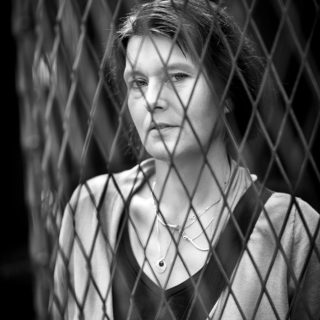The thrill of the chase-when gambling takes over
When the collection letters are piling up and the bailiff is at the door, the rational response would be to stop the behaviour that caused the situation. But for those who suffer from gambling addiction, the reaction may be the opposite – an increase in gambling and a chase to win back the money that was lost. So says Professor Anders Håkansson who, in 2016, became Sweden’s first professor of gambling addiction at Lund University.
“Gambling addiction is a huge problem”, he says. “About 0.5 per cent of Sweden’s population have diagnosable gambling addiction, and another 1.5 per cent have a problematic relationship to gambling”, says Anders Håkansson.
The concept of gambling addiction was established in the 1980s as a recognised diagnosis after previously being considered to be more of a bad habit, rather than an actual disease.
“The psychological and medical aspects were not taken into account”, says Anders Håkansson, adding that gambling abuse involves a clear addiction development in which the affected person is triggered by the same reward system that is stimulated in other types of addiction.
Anders Håkansson argues that, today, gambling addiction is considered a serious public health issue and the question of who is primarily responsible for the care of those affected is high on the agenda. Earlier this year, a decision was taken by the Swedish Riksdag that gambling addiction is to be considered equal to other types of addiction, such as drug and alcohol addiction. The hope is that this will facilitate the previously unclear path towards providing the right care. So far, the type of care that has proved most effective against gambling addiction is cognitive behavioural therapy.
The types of games that cause addiction are those that are known as games of chance, as well as other games in which you bet money for the purpose of winning more money. The thrill and the chance of winning large sums of money are what trigger the gambler to play increasingly often and to bet more and more money. An early sign of addiction is when the amount of time and money spent on gambling increases.
“Gambling addiction is a huge problem”
“When gambling goes from being pleasurable and exciting to becoming a chase for the money that was lost, it’s no longer about the initial positive effects”, says Anders Håkansson, continuing:
“When you start to act irrationally, exceed your own limits and feel that you have to hide how much you gamble from others – then you have a problem.”

Professor Anders Håkansson who, in 2016, became Sweden’s first professor of gambling addiction at Lund University.
Is gambling addiction harder to detect compared to other addictions?
“Yes, in a way, since it doesn’t involve any substances that smell, are visible or can be measured in other ways”, says Anders Håkansson.
“But, there are many other addictions which are difficult to detect”, he continues. “Even an alcoholic can hide their problems and be perceived as a well-functioning individual in society.”
Anders Håkansson points out, however, that because a lot of the gambling takes place online, gambling addicts leave digital footprints behind. According to him, this is where gaming companies have an important role to play as they could, by using the right tools, identify patterns and detect risky behaviours on time.
Like in other addictions, gambling addicts often experience symptoms, such as a state of depression, anxiety and other psychological problems. Their minds are preoccupied by the games, and they neglect other important things. In addition to the financial problems associated with gambling addiction, it inevitably often affects the gambler’s loved ones as well.
”This type of secondary suffering is often a contributing driving force making the addict seek help”, says Anders Håkansson.
Does research make a difference?
“Absolutely! And the fact that this is a relatively new field of research means that we are quickly improving the state of knowledge”, says Anders Håkansson, continuing:
“We generate interest and focus on the issue, and show that this is an interesting field to work in.”
Text: Catrin Jakobsson





